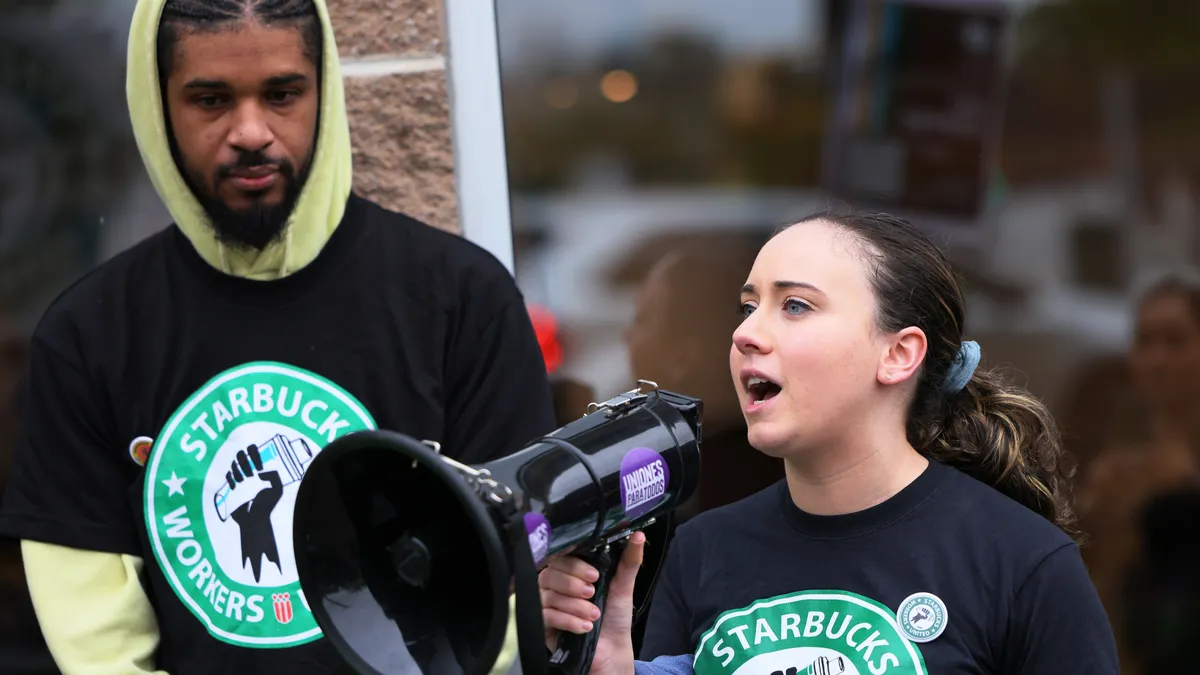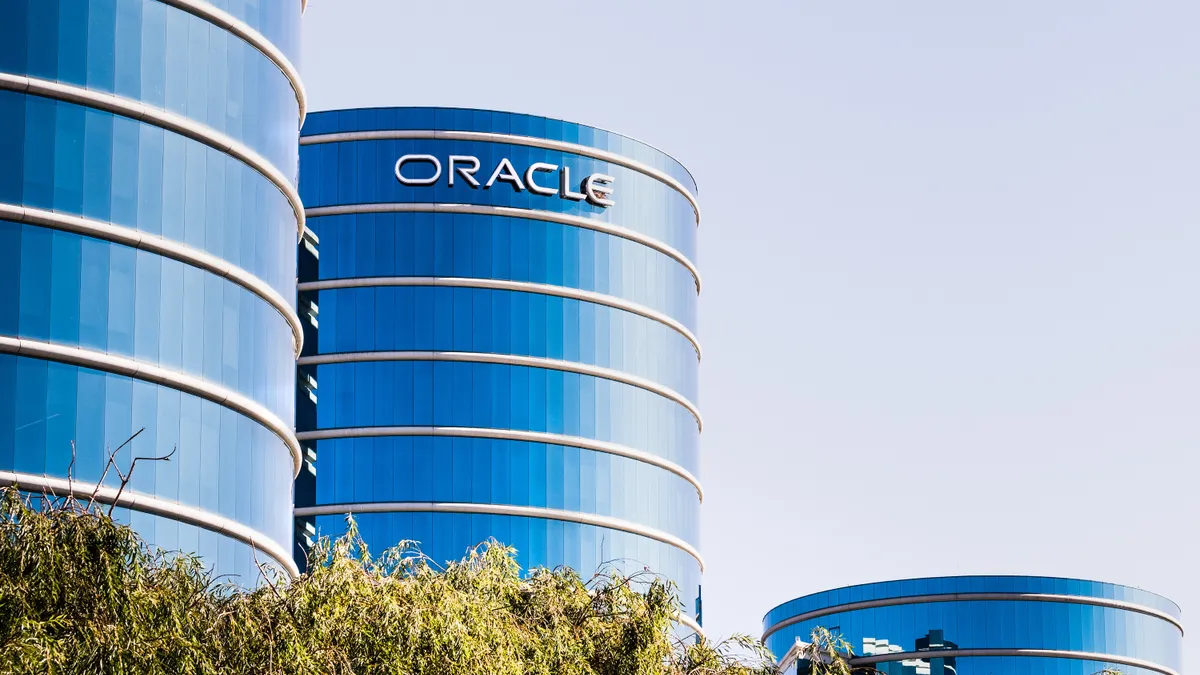Four Starbucks locations in the St. Louis area violated federal law when they discouraged store employees from joining a union, the National Labor Relations Board concluded Sept. 21.
According to the ruling, the employer engaged in unfair labor practices that violated the National Labor Relations Act. For example, store managers and district managers at multiple locations threatened to rescind planned raises and benefit enhancements; at one location, a store manager told employees during a mandatory meeting that they would definitely receive planned benefits if they didn’t unionize, but if they did, “that has to be negotiated.”
At another location, a transgender barista described a conversation with a store manager and district manager that turned to the worker’s trans identity and unionization efforts. “[The store manager] told me that Starbucks already had all the resources that I would need,” the worker told NLRB. “And that she can get me into contact with other trans people in Starbucks. But that she didn't believe those resources would be available to me anymore if we went Union.”
During the same interaction, NLRB said, Starbucks violated the NLRA by asking the worker if they wanted to see any changes around the store, amounting to a solicitation of grievances. Per a previous decision, NLRB noted, solicitation of grievances is unlawful when it “carries with it an implicit or explicit promise to remedy the grievances and ‘impress[es] upon employees that union representation [is] . . . [un]necessary.”’
At a different location, Starbucks employees held a “sip-in” demonstration, during which off-duty employees and union supporters ordered drinks with pro-union monikers. The event led baristas to call out names like “union strong” and “union yes,” according to the NLRB ruling.
In response, an assistant store manager told at least one barista to stop reading out the names or he would be sent home. Starbucks also posted an employee-facing document on the same day, noting that baristas “should … not write or print content on items that advocates for a political, religious or a personal issue, even if requested by a customer.”
According to the NLRB, Starbucks’ posted directive, which could be construed as barring activities like the sip-in, “has a reasonable tendency to chill employees from exercising their Section 7 rights.”
Further, Starbucks has a history of promoting “political” and “personal” discourse, the NLRB pointed out, by selling T-shirts associated with Black Lives Matter, LBGTQ+ pride and other such topics. “At best, this is inconsistent, and at worst, this is hypocrisy,” NLRB wrote of the rule.
Similarly, the NLRB found the same store in violation when it banned employees from wearing pro-union T-shirts — designated “graphic T-shirts” — under its dress code policy. Given that the location could not produce prior warnings for the same offense, “It … appears that what was previously accepted (i.e., wearing graphic t-shirts as a general matter) suddenly became unacceptable, once employees began wearing Union graphic t-shirts, began organizing and went on strike,” NLRB concluded.
The NLRB ordered a number of remedies for the violations, including rehiring a worker fired for wearing a pro-union T-shirt, gathering and reading out to employees a list of Starbucks’ violations and their rights under the NLRA, and, in the case of one store, tossing previous election results and holding a new election.
In addition to the four stores that the NLRB found to have violated the NLRA, the Board found one other St. Louis store not in violation.
Likewise, the Board dismissed some complaints even at stores it found to be in violation, noting that practices like holding captive audience meetings were legal and dismissing the accounts of one pro-union employee it found to be “less than credible” and “uncooperative.”
According to an ongoing data collection effort run by an assistant political science professor at Miami University, workers have voted to unionize at more than 350 Starbucks locations. Seventy more locations have voted against unionization, and elections are pending at more than 25 locations.
The NLRB has paid close attention to Starbucks’ conduct as union fervor has spread through its stores, with significant corporate pushback. In March, the company was found to have committed “egregious” violations of labor law during the union drive in the Buffalo area, where the first of the company’s stores unionized. In a separate August ruling, the NLRB ordered Starbucks to rescind its “How We Communicate” workplace policy.
Starbucks did not respond to a request for comment by press time.






















